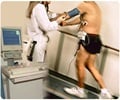A campaign to help clinicians and patients avoid wasteful and sometimes harmful medical interventions has received the support of several medical organizations.

Experts estimate that waste constitutes up to 20% of health care expenditures in the United States. To address this problem a number of national medical societies have joined the Choosing Wisely® campaign, with each creating a list of five common but sometimes unnecessary, tests, therapies, or procedures in their fields that patients and physicians should question and discuss. The Society of Hospital Medicine joined this effort in 2012, and it asked experts to create such lists regarding the care provided to hospitalized adults and children.
In addition to including the Choosing Wisely lists for pediatric and adult hospitalists, the new articles provide details about the methodologies used to create them. The details can serve as a blueprint for other healthcare organizations interested in researching and developing lists of potentially over-used or harmful interventions.
The recommendations – five for hospitalists and five for pediatric hospitalists – were published jointly by the American Board of Internal Medicine Foundation and the Society of Hospital Medicine in early 2013.
The top five recommendations proposed for hospitalized children are:
- Don't order chest radiographs in children with asthma or bronchiolitis. This has the potential to decrease costs, reduce radiation exposure, and minimize the overuse of antibiotics due to false positive results. Advertisement
- Don't use bronchodilators in children with bronchiolitis because the agents have minimal or no treatment effects.
- Don't use systemic corticosteroids in children under two years of age with a lower respiratory tract infection because the treatment is potentially harmful and provides little or no benefit. Advertisement
- Don't treat gastroesophageal reflux in infants routinely with acid suppression therapy, such as proton pump inhibitors. Studies show that such treatment is no more effective than placebo in infants, and it may cause side effects.
- Don't use continuous pulse oximetry—a method for measuring oxygen saturation in the blood—routinely in children with acute respiratory illness unless they are on supplemental oxygen. Continuous monitoring of oxygen saturations in hospitalized infants with bronchiolitis may lead to overdiagnosis of hypoxemia, increased hospital duration, and the use of oxygen that is of no apparent benefit to the child.
In an accompanying review, researchers also outlined the five recommendations adopted by the Society of Hospital Medicine regarding the care of adults. These recommendations include:
- Do not place, or leave in place, urinary catheters for incontinence or convenience or monitoring of output for non-critically ill patients.
- Do not prescribe medications for stress ulcer prophylaxis to medical inpatients unless at high risk for gastrointestinal complications.
- Avoid transfusions of red blood cells for arbitrary hemoglobin or hematocrit thresholds and in the absence of symptoms or active coronary disease, heart failure, or stroke.
- Do not order continuous telemetry monitoring outside of the intensive care unit without using a protocol that governs continuation.
- Do not perform repetitive complete blood count and chemistry testing in the face of clinical and lab stability.
Source-Eurekalert









